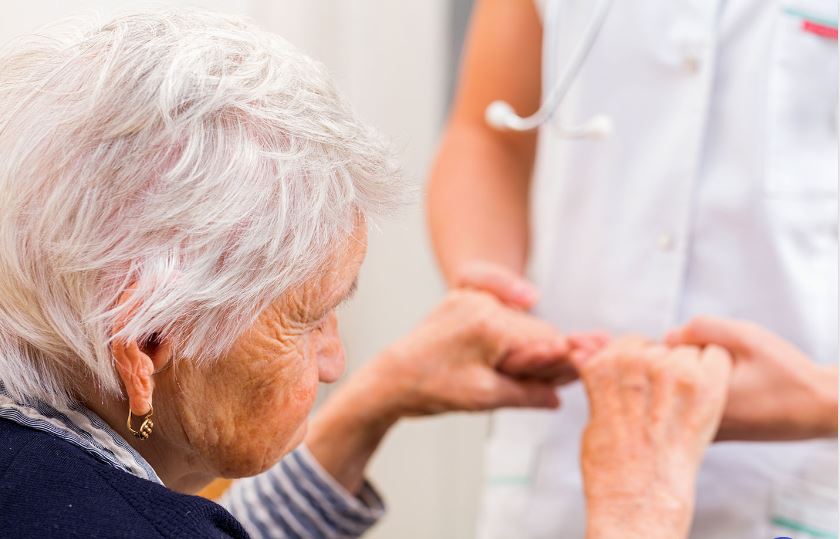
by editor | Aug 4, 2022 | Billing, Billing - General, Compliance and Regulatory, Compliance and Regulatory - Directors, Documentation - Nurses, Financials, Intake, Patient Care, Rules and Regulations - Nurses, Rules and Regulations - Office Team
Prior to the third hospice benefit period, and prior to each subsequent benefit period, a hospice physician or nurse practitioner is required to have a face to face encounter with the hospice patient to recertify that the patient continues to be Medicare eligible for hospice benefits. The face to face encounter must occur within 30 calendar days prior to the start of the third benefit period and each subsequent benefit period.
The face to face encounter is necessary to recertify that the patient remains eligible for Medicare hospice benefits. If face to face encounters are not performed timely, the patient is is no longer hospice eligible. The hospice may continue to provide hospice services to the patient but may no longer continue to bill Medicare. Instead, the hospice would need to assume all financial responsibility for the patient until such time that the hospice is able to reestablish patient hospice eligibility. The patient may be readmitted to hospice once hospice eligibility criteria are once again met.
What if there are exceptional circumstances that cause the hospice to be unable to timely complete the face to face encounter?
What are exceptional circumstances?
If a patient is admitted and is in the third benefit period or later, the hospice agency may be unable to perform the face to face encounter prior to the start of the benefit period.
For example, if the patient is an emergency weekend admission and the nurse practitioner or hospice physician is unable to meet with the patient prior to hospice admission. The patient is only seen the following Monday.
Another exceptional circumstance may be where the CMS data system is unavailable and the hospice agency is unaware that the patient is in the third or later benefit period.
In these documented exceptional circumstances, the face to face encounter is considered timely if it is completed within two days after admission.
In addition, if the patient dies within two days of admission, the face to face encounter is considered complete.
Where can you get more information?
Details on Medicare Face to Face encounter requirements: Medicare F2F encounter requirements

by editor | Aug 4, 2022 | Billing, Billing - General, Compliance and Regulatory - Directors, Documentation - Nurses, Financials, Hospice 101 - Aides, Hospice 101 - Chaplain, Hospice 101 - Nurses, Hospice 101 - Office Team, Intake, Patient Care, Patient Eligibility, Rules and Regulations - Nurses, Rules and Regulations - Office Team
A hospice face to face encounter is a step in patient recertification beginning with the third benefit period and each benefit period thereafter. The goal of hospice face to face patient encounter is to encourage greater involvement of the physician in the care of patients who have been on hospice for an extended period of time. These patients will require a face to face visit from the physician or from a hospice nurse practitioner who will determine continued hospice eligibility. The face to face encounter is one part of hospice recertification. As such, the face to face encounter will also occur prior to recertification.
When must a face to face encounter take place?
A face to face encounter must take place within 30 days prior to the start of the patient’s third benefit period. It also must take place within 30 days prior to each subsequent benefit period. The requirement for a face to face encounter considers the patient’s hospice stays across all hospices. For example, if a patient spent 100 days at Hospice Agency A and then switched to Hospice Agency B, Hospice Agency B will need to conduct a face to face encounter within 50-80 days of the patient’s admission. That is, when the patient is admitted to hospice B the days of counting toward the face to face encounter begin from the first day that the patient entered any hospice care.
How will I know if the patient has had prior hospice care?
Upon admitting a patient, the hospice agency should check the Common Working File to determine the patient benefit period and whether a face to face encounter is required.
Who may conduct the face to face encounter?
Either the hospice physician or nurse practitioner (NP) may conduct the face to face encounter. The hospice physician may be an employee or contracted by the hospice agency. If the NP conducts the face to face encounter, the NP must be an employee of the hospice and is not permitted to be a contractor (since nursing is a core service).
What should the recertification narrative include?
The third benefit recertification – and each subsequent recertification – will need to contain clinical findings that support continued hospice eligibility. The narrative must include an explanation of why the clinical findings support a life expectancy of six months or less.
If the physician conducts the face to face, he or she will be responsible to write the narrative about the clinical findings regarding the patient’s condition and for certifying the patient’s continued eligibility for hospice.
If the nurse practitioner conducts the face to face encounter, he or she will report back the clinical findings to the interdisciplinary team as well as to the hospice physician who will certify as to whether the patient is eligible for continued hospice care.
The recertification requires an attestation
The clinician who conducts the face to face encounter must attest in writing that the face to face encounter was performed with the patient and must include the date that the encounter occurred.
If an NP conducts the encounter, the NP must attest that the clinical findings were sent to the certifying physician.
The attestation is signed and dated in is included as a separate and distinct section of the recertification. The recertification also clearly notes the benefit period dates for which the recertification applies.
What happens if the face to face does not take place timely?
If the face to face does not take place, the patient is considered no longer considered terminally ill and therefore is not eligible for the Medicare hospice benefit. The patient remains ineligible until such time that the face to face encounter occurs and it is confirmed that the patient is once again hospice eligible. The patient must be discharged from the hospice but can be readmitted once the face to face encounter occurs. Medicare does permit the hospice agency to continue to provide services at the agency’s expense until the patient’s eligibility is reestablished. However, this care will be provided outside of the Medicare hospice benefit.


